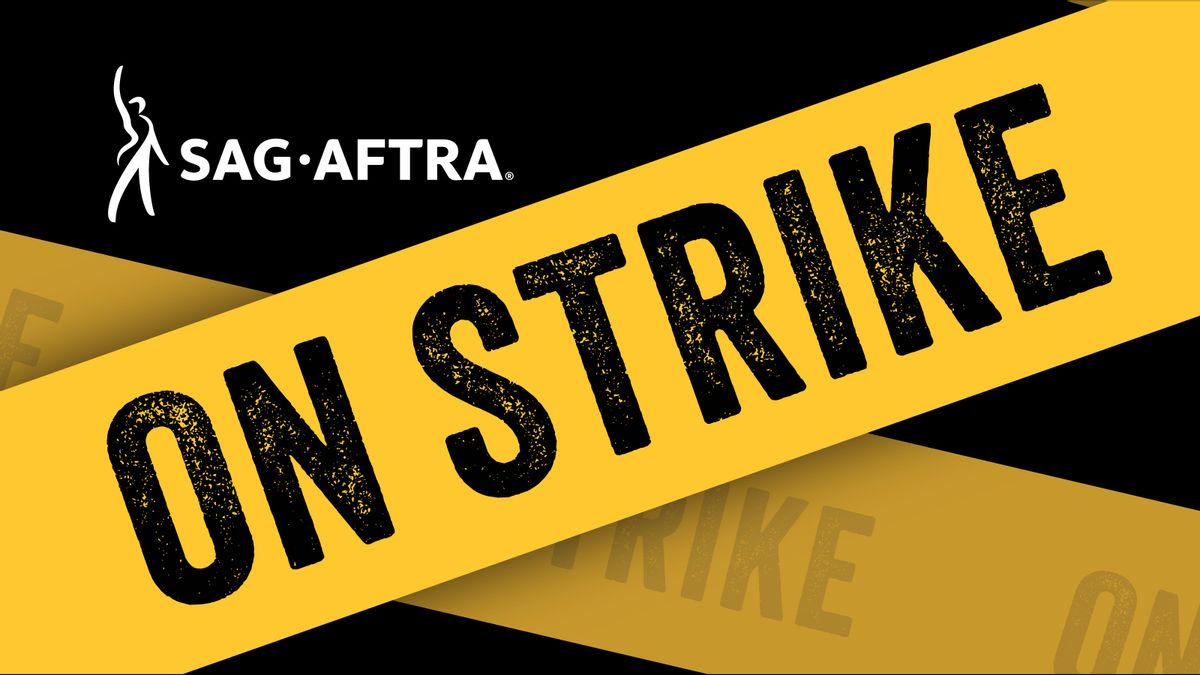JAKARTA - Since last June, Hollywood studios and actors have debated the use of artificial intelligence (AI) in films and television. The disagreement regarding the use of AI is one of the reasons why the SAG-AFTRA union representing actors and media professionals has joined the strike with scriptwriters. This is the first simultaneous strike in 63 years.
One of the biggest fears of actors is about the presence of synthetic actors.
During negotiations between the two parties, they discussed issues ranging from using images and appearances as training data for AI systems to digital editing of appearances in editing rooms. Actors worry that actors who are fully created by AI, or known as "knowing," will steal their roles.
"If the use of AI to replace the actors is not a big deal, then there is no reason for them not to include it in the contract and give us peace of mind," saidten Turro, an actress who has appeared in television series such as "Homeland," who rallied this week. "The fact that they don't want to do it is scary if we think about the future of art and entertainment as a career."
Thank you to everyone who came out to the LA and NY #SAGAFTRAstrike and #WGAstrike picket lines today! pic.twitter.com/i28tRm0U2X
— SAG-AFTRA (@sagaftra) July 22, 2023
Thank you to everyone who came out to the LA and NY #SAGAFTRAstrike and #WGAstrike picket lines today! pic.twitter.com/i28tRm0U2X
One of the other problems is the creation of synthetic actors from a combined image of actors. A source from the studio stated that this had not happened, although they were trying to secure the right as part of the contract negotiations.
SAG-AFTRA's main negotiator, Duncan Crabtree-Ireland, said that AI gives rise to "existent crisis" for actors who fear past work, now, and their future will be used to create "synthetic actors who can replace their position."
Crabtree-Ireland says the union is not seeking an absolute ban on AI, but wants consulting companies and seeking approval from the union before casting synthetic actors instead of an actor.
Big film and television producers have stated that they have responded to union concerns about this issue in their latest proposal, according to sources familiar with the matter. However, the union has yet to respond to their proposals, sources from the studio said.
The studios, who wish to maintain creative options, agreed to notify SAG that they plan to use synthetic actors to replace a human actor who should have been hired for the role, and provide unions with the opportunity to negotiate, according to sources familiar with producer positions.
DIGITAL REPLICA
Another dispute in the negotiations is the creation of a digital replica from the background cast.
Producers from major studios, represented by Alliance of Motion Picture and Television Producers, said they would obtain permission from an actor to use their digital replicas in films beyond production for those the actor employed, according to sources familiar with producer proposals.
The producers said they would negotiate with actors about payments when digital replicas were used, and determined that the virtual version of the actor could not replace the minimum number of background cast required in the SAG agreement.
SAG said the studios had agreed to get approval at the start of the work, which they said contradicted the idea of additional compensation.
"This means that these companies will notify the background cast, 'If you don't give the approval we ask, we won't hire you and we will replace you with someone else,'" said the Crabtree-Ireland. "That's not a meaningful agreement."
The studios also want to maintain a long-running 3D body scan practice to capture the look of an actor, in this case to create a digital replica generated by AI.
"These images will be used in the post-production stage to accurately replace the face of an actor or create a replacement for the actor on the screen," said a source familiar with the film production mechanism.
The producers have pledged approval from the cast at the start, and negotiated separately for the next use of an actor's digital replica, sources said.
Crabtree-Ireland says that studios can do it now, with the right approval and compensation. The issue for unions is the desire to defend the right to digital replicas for future works, so that it effectively has ownership of the virtual persona.
Similar, studios want to get the right to digitally change a performance at the post-production stage, according to the character, script, and director's vision. The ability to replace one or two dialogue words, or make rapid changes to digital clothing, can save hundreds of thousands of dollars in the cost of recapture a scene, said one source from the studio.
The producers offer to seek approval from an actor for any changes beyond the usual changes made at the post-production stage, according to sources.
SAG argues that before there is a change in the image, appearance, or voice of an actor, the permit must be sought first.
The debate over the use of AI in the entertainment industry shows how complex the challenges and implications of technological advances in the world of cinema and television are.
The conflict between producers and actors' unions highlights the concerns and fears of the parties involved, especially the actors, about how AI could influence their work and the future of art and entertainment.
Actors worry that with the emergence of synthetic actors fully generated by AI, their work could be threatened and the roles that should be given to humans will be transferred to digital characters. This could have an impact on the income and stability of actors' careers, as well as changing the dynamics of the entertainment industry as a whole.
اقرأ أيضا:
While producers want to take advantage of AI's potential to create more realistic and efficient visual characters and effects, they should also consider ethical and justice implications related to copyright, data ownership, and the use of images and appearance of actors to train AI systems.
Facing the evolution of this technology, it is important for the entertainment industry to find the right balance between the use of AI for innovation and creative progress, while respecting the rights and interests of workers and artists.
There needs to be an open and transparent dialogue between producers, actor unions, and other stakeholders to reach an agreement that benefits all parties.
As AI technology continues to develop, issues surrounding its use in the entertainment industry will continue to emerge. In addition to the challenges faced in negotiations between producers and actor unions, the entertainment industry must also consider appropriate regulations and guidelines to ensure that AI is used ethically and responsibly, as well as to protect the interests of workers and art integrity.
In dealing with the increasingly real reality of the Jobeyman AI, stakeholders must work together to find a just and sustainable solution to face these challenges of the future. This was quoted from Reuters.
The English, Chinese, Japanese, Arabic, and French versions are automatically generated by the AI. So there may still be inaccuracies in translating, please always see Indonesian as our main language. (system supported by DigitalSiber.id)















